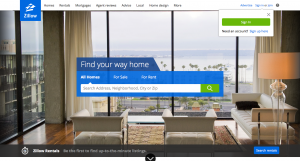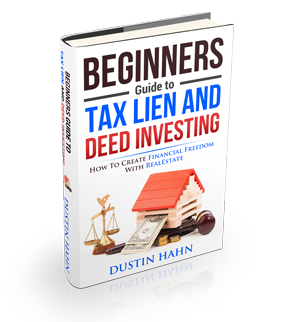Last Updated on August 24, 2025
Table of contents
Despite everything you’ve heard in the media, and read online, and even what some of you’re “misinformed” investor friends have said, Tax Liens and Deeds can be extremely profitable, if you know what you’re doing.
And I’ll be honest here – if you don’t know what you are doing (and I’ve seen lots of students and so-called “Pros” do this), you can lose A LOT of money, and lose it fast.
But the fact that you are reading this right now proves to me that you are committed to finding out the truth about Tax Liens and Deeds and are ready to make some serious changes in your life.
And what if getting properties like this one below was actually possible? (Yes, I know it’s SUPER Fancy, but who’s to say you couldn’t find an old mansion for super cheap, and fix it up? – One of our students has recently purchased a HUGE mansion for only $32k!)

*Quick SideNote: If you want to fast-track your results with Tax Lien & Deed Investing, check out this free training guide I’ve created just for you. It’ll help you avoid the 3 most common mistakes new investors in this business make.*
5 Things You should know to avoid losing money at a Tax Lien Sale:
- Due Diligence – Knowing what to research and HOW to research effectively and efficiently.
- Planning Your Highest Value Time, so you don’t end up wasting it doing meaningless things before/during/after a Tax Lien Sale.
- Taking Quality Notes & Photos Before the Tax Lien Auction
- Don’t Get Attached To Getting A Property (And Avoiding The Shiny Object Syndrome)
- Know Your Budget – And STICK WITH IT
Now, let’s take a closer look at each one of these.
1. Due Diligence – Knowing What and How to Research effectively and efficiently.
This is where many of the so-called “Investors” lose their cool.
It’s great that there is this avenue of Real Estate that pays 10-26% interest on returns, yet so many people just jump right in, and don’t actually take the time to do any sort of research on how it all works.
(And then when it blows up in their face, they’ll be the first to say its a “scam” or “outdated strategy.”
False – It’s just lazy people, not taking the time to do the pre-work.
There are a few tips I want to share about this:
A. Don’t go buying everything you see, just because it has a nice “profit potential.”
Many times, there will be REALLY nice profit spreads on tax liens, but the fact is, you could be buying a piece of land that is 3 feet wide, and 2 miles long, that the county subdivided 100 years ago, and is completely useless for the investor.
B. Know exactly where the property you are bidding on is located – find it on the county plat. We are dealing with all open record stuff, so you can head into the county office (or pay someone else to), or look online and find out where the parcel of land is. (Making sure you don’t buy the side of a highway, or part of the desert).
C. If you’re investing in your own state, actually go visit the property yourself when you’re first starting. Get a feel for what it’s like to look at a property, and what you need to look for/avoid/cash in on.
Once you get the hang of it, you can hire other people to go to the property and take pictures for super cheap, but when you’re first starting, make a point to get to the Tax Lien or Deed sale, and to the properties you’re looking to invest in.
D. Know the area you are investing in, to make sure it’s not an area that you won’t be able to sell, should you foreclose on the lien. (Or get the deed)
A quick way to check this? Google Maps or a great website called Zillow.


2. How to Avoid Wasting Time on Meaningless Things Before, During and After a Tax Lien Sale?
This one seems obvious, but I’ll quickly go through some very key points.
Figure out before you get to the county auction, which properties you are going to buy – Get the list, go through it, figure out which ones are in your budget, and make a new list of the ones you want to look at.
It’s really simple. If you’re a keener, you could hire your daughter or son, or your best friend’s kid to scan the list and pull out all the properties in your budget range.
(Although I strongly recommend doing this at least a couple of times starting out, so you know how it’s done.)
We want to focus on the highest value properties, aka the ones that will give us the biggest return.
And we want to have a decent number of properties on our list, cause the fact is that they will redeem before the tax sale – people will pay their taxes up to the very last second.
The more you have on that list, and the more you see beforehand, the greater your likelihood of getting one you want increases.
It’s a numbers game, folks!
Note: This Is Important
If you are the one driving around to all the properties, you need to get a GPS that you can input all your properties into.
You’ll want to find one that will tell you what the best route to take is to minimize the time it takes to get to each one.
Basically, you want one that will optimize your route.
(I know that higher-end Garmins allow you to input multiple addresses. I’ve manually entered up to 50 addresses. Some models can sync directly from your computer to the GPS!)
This is critical in saving you time, energy, and, not to mention, safety on the road, trying to input an address on the fly.
3. Taking Quality Notes & Photos Before the Tax Lien Auction
This tip is about visiting actual properties. When you’re visiting properties yourself, take a photo of the home/land and jot down detailed notes to avoid confusion with other properties.
You’d be surprised at how easy it is to view 50 properties in a day, only to come back at the end of the day and have no idea what notes are for what property or which picture goes where.
I myself like to use a checklist, and making a spreadsheet of all the properties i’m visiting, and using a rating scale from 1-5, and if I write a 1 down next to that property on my checklist, i am 100% bidding on it at the property.
But if i write a 3,4 or 5, I’m either definitely not bidding it at, or I have some more numbers to crunch when I get back to my hotel room and see if I could make it profitable.
Why is it Important
The reason it’s so important to keep track is that it is very possible that you could bid on the wrong property, get it, and be stuck with a property that is useless and you don’t want.
I still remember, on one of our Auction trips with students, a young lady accidentally bought the wrong property (It was next to the property she wanted).
That could have ended very badly for her, because at some auctions, if you don’t pay for it, you get banned from coming back.
Luckily, in her case, the county was gracious and allowed her to not pay for it and come back and bid at the next auction.
She got lucky – that is why it is critical to keep detailed notes, and using notepads, iPhones, Samsungs, Apps, or whatever you need. In order to keep track of what you’re seeing and what you’re going to bid on. So at the end of the day, when you’re back making your game plan, it makes sense to you what you’ve seen that day.
4. Don’t Get Attached To Getting A Property
This one can make or break your bank account really quickly.
Just like the story of the lady mentioned earlier, you might become overly excited and get caught up in the bidding process. You can bid up a property extremely fast. And before you know it, blow past your budget in a matter of seconds.
Energies are running hot, and the last thing I want you to do is to walk away with a property or Tax Lien that you haven’t budgeted for.
If it’s your first auction trip, or even your second or third, the danger of NEEDING to walk away with a property can be severe…
And, reversely the thought of being too successful can be just as dangerous.
Have you ever been promised money in advance and instantly thought about ways you could spend that money? A new truck, perhaps? A new kitchen redo? Giant television?
Have you ever gone out and bought something, anticipating a raise, bonus, or extra cash, only to find out you didn’t get that money and ended up stuck with an expensive bill you couldn’t afford?

I call this the “Shiny Object Syndrome,” and it is dangerously easy to fall into.
Beware of overconfidence
This is why I mention this. I want you to recognize that our minds can easily envision the profit potential. Investing in tax liens and deeds can lead us into a daydream. We imagine buying every new gadget we desire. Thinking about getting the best truck, refrigerator, and TV. We may even dream of travelling to Australia for six months.
While having goals and dreams are a must, being able to know when we are jumping a little too ahead of ourselves is also a powerful skill to master – The Skill set of Patience and Self-Control.
I know I sound like your Parents here, but it’s something I want you to be very aware of, especially at your first couple of tax lien sales.
All of this leads me into the last tip I want to share with you today, which is…
5. Know Your budget and Stick with It
This method is simple, but you may find it challenging to maintain. However, it will help you avoid getting caught up in the Tax Sale frenzy..
Set your max budget, and don’t deviate from it at ALL (this is a VERY Important rule for first time/second time tax auction attendees)
The atmosphere at a Tax Lien or Deed auction is incredibly energetic, and bidders can quickly escalate the prices from $1,000 to $10,000 or even $20,000 if the property has significant value.
If you have the budget for that, then great. However, if you set a budget of $7,000 and end up with a $14,000 property, you’ll find yourself in a tough situation!
The night before, organize your properties and determine what you want. Know how much money you have to invest. Stick to your budget!
If you don’t have a max budget, you’ll be uncertain once the auction starts, and lose your common sense if there is someone bidding against you.
Got it? Good 🙂
FAQs
No. A tax lien certificate gives the investor the right to collect the overdue taxes plus interest. A tax deed sale can transfer ownership of the property after a redemption period. Rules vary widely by jurisdiction.
Counties publish auction notices on their websites and in local newspapers. Some states also offer over‑the‑counter liens for sale. Check with your county treasurer or tax collector for details.
Returns depend on state interest rates and whether the property owner redeems. Investors must understand the risks and prepare to take ownership of the property if they do not redeem the lien.
Need a Hand
So those are some of the most important things I’ve learned from attending Tax Lien or Deed Sales, and the very same things that I teach my students who sign up for our Live Tax Auction Trainings.
If you are interested in some more in-depth articles and information on Tax Lien and Deed Investing, I’ve got a free training guide that outlines the 3 biggest mistakes that beginner investors make, and how you can avoid them. You can click on the image of the free training guide or the button a bit further down the page to grab your free training guide today!

I hope you’ve gotten a lot out of this article, and if you like it, please share it with someone who could use this info, like Tax Lien Certificate School on Facebook, and if you have any questions, my team and I would love to help you out in any way we can, just post them below!





